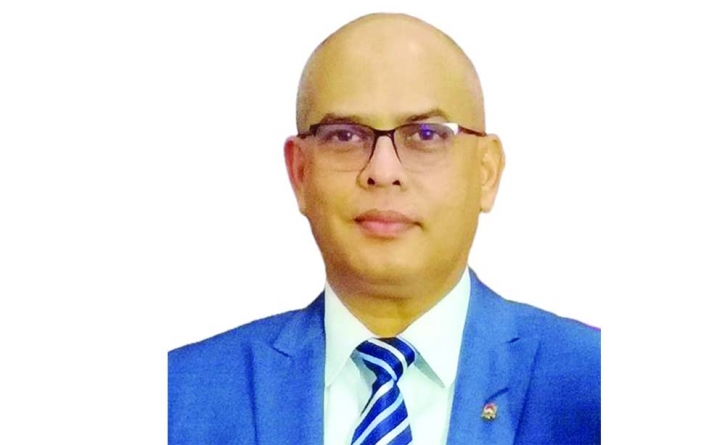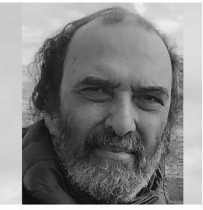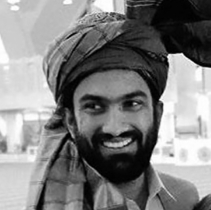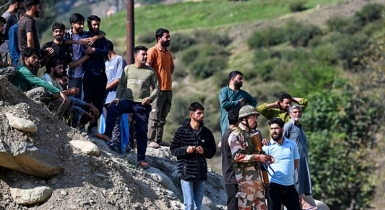
Why they call it a terminal at the airport?'Terminal' primarily indicates termination, an end or near to an end… like terminal state of illness….
The journey at the port, airport or bus station never ends. It continues with another mode or means. It is a transfer place, not a terminal. The terminology sounds like a misnomer, no?Could be.
But save that fact, I must admit that one of my most watched movies have long been 'The Terminal' - an epic masterpiece made by the maestro-duo Steven Spielberg and Tom Hanks. I had watched it not less than ten times, and would not hesitate to watch it again. The storyline portrays one Viktor Navorski getting stateless in the JFK airport of New York, after his country endures a coup d'etat and his passport becomes invalid. He remains confined there for about nine months, till the end of the civil war in his country.
The movie is based on a real-life incident of an Iranian Mehran Karimi Nasseri, who lived for 18 years in Paris' Charles de Gaulle Airport from 1988 until 2006. Initially he was somewhat compelled to live there lacking requisite papers for immigration; but later he continued living on own preference. During his time there, he wrote an autobiography named 'The Terminal Man' in 2004 and several movies/plays were also made after him.
Nasseri had to leave the airport in 2006 for being hospitalized, following which a refugee status was granted to him in France. However, after a few years, he went back to the airport and died there of a heart attack on 12 November 2022, at the age of 76.
Why did he return? Many mused. Possibly he became obsessed with the way he lived in the airport. Perhaps he was feeling vulnerable. A doctor once suggested that he became a 'fossilised man', indicating his poor mental health. Someone compared him to a prisoner incapable of "living on the outside" .
But the most fascinating of all reasons could be, perhaps he thought the airport as the gateway to find his ancestry.
He was looking for his real mother. At the age of 23, he came to know that his insofar known mother had not been his 'biological mother'. Did that cause him a mental tremor? And he got into certain emotional numbness? We are not sure.
The Guardian online elaborates his story. Nasseri was born in the Iran's oil-rich province of Khuzestan in 1945, as one of six children, to a doctor father who worked for the Anglo-Iranian Oil Company. After his father's death, his mother informed him that he was the result of an affair between his father and a Scottish nurse. He then spent three years studying Yugoslav Studies at the University of Bradford in UK and participated in a protest against the Shah, for which his passport was confiscated after his return to Iran.
In 1981, Belgium granted him refugee status and he tried to travel on to Britain to find his real mother, who was thought to be residing in Glasgow. But he suddenly became stateless after losing or 'disposing' all identity papers (very astonishing!). So, he was detained, sent back to Belgium or France. After several repeated cycles of attempted entry to UK and sending back over, he gave up and settled at the Charles de Gaulle Airport in August 1988. In 1992, a French court ruled that Nasseri had entered the airport legally as a refugee and could not be expelled from it. So, he continued living there.
Subsequently over the years, Nasseri was offered citizenship by Belgium and France, which he rejected. At the airport, he spent most of his time reading writing, watching and accepting occasional meal vouchers from airport staffs. But he declined donations and gifts.
The Guardian online concludes:
'Asked by a journalist in 2003 whether he felt angry about having lost 15 years of his life at an airport terminal, he replied: "No angry. I just want to know who my parents are."
In laymen terms, a stateless person does not 'belong to' any country. By legal definition, a stateless person is "a person who is not considered as a national by any state under the operation of its law" . By 2019, UNHCR calculated 4.2 million stateless persons worldwide, but estimated that the actual number may be over 10 million due to underreporting . Some are stateless by birth, and some become stateless because of socio-political-economic-environmental reasons. Nasseri became stateless, one could say, by his choice.
My experience of working with the refugee/stateless people on several occasions tells me that no one wants to remain stateless. In 1999-2000 as UN Military Observer in East Timor (Timor Leste), I worked with the teams of UNHCR/IOM at the Batugade-Mota'ain for refugee repatriation. There were as many as 260,000 refugees awaiting to be brought back home. It was an interesting experience to support and facilitate their return. The joy and jubilance in the eyes of the returnees were captivating and the experience of ushering them through the checkpoints to their waiting relatives was unforgettable. Sometime we visited them across the border. They lived and survived only with a dream - to get back to the homes someday, where they left their roots.
Twenty years later in 2019, I was working to deal with yet another similar but much more complex situation. In Teknaf and UkhiaUpazilla of Bangladesh, a forcibly displaced community was making an indefinite wait. They were uprooted after having suffered a enforced denaturalization. This hybrid society acquired own ethno-cultural identity and rights over a prolonged historical context, which was systematically denied. They are officially recognisedas Forcibly Displaced Myanmar Citizen (FDMN), locally being known as Ruáingga(Rohingya).
I had the opportunity to work with them for about two years. Taking advantage of the language affinity, I interacted with the community frequently (including a regular bi-weekly meeting with their makeshift leaders, the majhis ) and tried to understand the depth of the problems. In almost all the sessions, they repeated their dislikes to live in another country. They cherished to return to their homes and farmlands in Maungdaw, Buthidoung, Rathidoung, Foira Bazar, Akyab…. where their forefathers were buried in the plains and plateaus of the Kaladan Valley. At Unchiprang - we met Mr. Kalu Mian - a seventy plus elderly man with tearful eyes. His left arm was entirely broken in several pieces by brutal beating and was hanging sidelong like a connected sack. He was living with an awful pain. While he opened his shirt to show the sign of brutality; the very sight was unbearable. (Later we could fix the arm by a lengthy surgery). Even with so much of horrible experiences, Kalu Mian, no matter what, wanted to return.
No one wants to live in a terminal and keep waiting. Except Nasseri; he was exceptional.
Why so?
Identity is the prime psychological security humans long for. Why Nasseri didn't care at all about getting back to his home and settle identity? Why didn't he start over with marriage and children? Not known. I haven't read any psychological analysis of his long stay. But I thought he couldn't find the thing he looked for in normal society. Was it a kind of metaphysical awakening? Did he turn a cynic like Diogenes by refusing all earthy desires for wealth and power, and live simply free from all possessions ?Nasseri probably realised the hollowness of the passing material life, where people are immersed in chasing fortunes, without understanding its brief-ness. So, he preferred going back to the 'Terminal', to watch the transitory arrivals and departures, and wait for his turn to get on board for the eternal journey.
Isn't our worldly life resembling a wait in a bigger terminal? We just have a temporary halt here. The tour of life goes on to sustain the reality for getting born. And to most of us believing in an afterlife, death does not mean an end of the journey.
Nothing perishes in reality, just transforms. No journey ends anywhere, just get re-embarked for a bigger expedition.
We are refugees of one world waiting to be shipped to another. Here, in a bigger terminal, it is meaningless to make much ado about nothing. Unlike Nasseri, we do not understand this gamut well. Perhaps.
The writer is a military professional. He can be reached by asadullahminhaz@gmail.com.





































